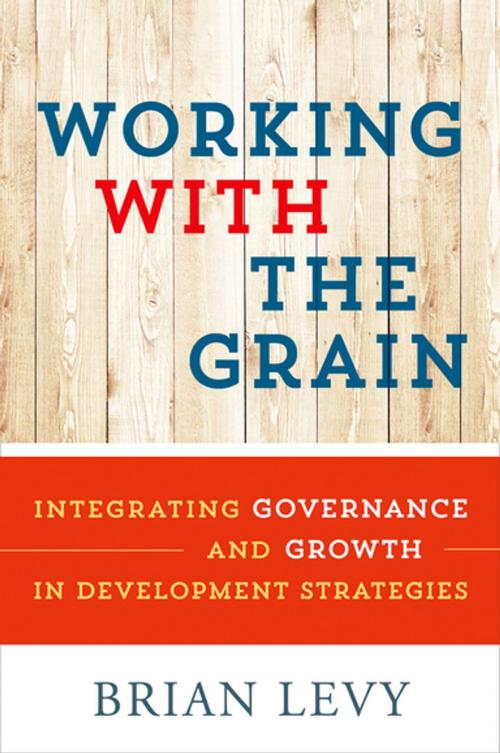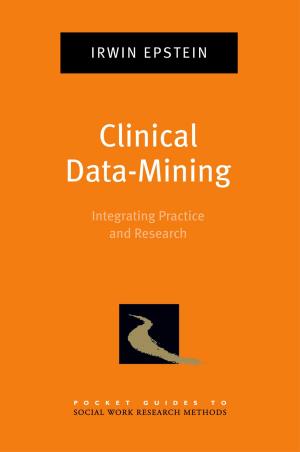Working with the Grain
Integrating Governance and Growth in Development Strategies
Business & Finance, Economics, Economic Development, Nonfiction, Social & Cultural Studies, Political Science, Politics, Economic Conditions, Economic Policy| Author: | Brian Levy | ISBN: | 9780190206864 |
| Publisher: | Oxford University Press | Publication: | August 28, 2014 |
| Imprint: | Oxford University Press | Language: | English |
| Author: | Brian Levy |
| ISBN: | 9780190206864 |
| Publisher: | Oxford University Press |
| Publication: | August 28, 2014 |
| Imprint: | Oxford University Press |
| Language: | English |
The development discourse has long been dominated by best practices prescriptions for reform, but these are not a useful way of responding to the governance ambiguities of the early 21st century. Working with the Grain draws on both innovative scholarship and Brian Levy's quarter century of experience at the World Bank to lay out an alternative-a practical, analytically grounded, "with-the-grain" approach to reducing poverty and addressing weaknesses in governance. Best practice prescriptions confuse the goals of development with the journey of getting from here to there. A strong rule of law, capable and accountable governments, and a flexible, level playing field business environment are indeed desirable end points. But the ability to describe well-governed states does not conjure them into existence. If the only available actions are all or nothing, then efforts at change will almost certainly fall short, leading to disillusion and despair. By contrast, this book takes as its point of departure the realities of a country's economy, polity and society, and directs attention towards the challenges of initiating and sustaining forward development momentum. The book: -- distinguishes among four broad groups of countries, according to whether polities are dominant or competitive, and whether institutions are personalized or impersonal -- identifies alternative options for governance and policy reform-top down options which endeavor to strengthen formal institutions, and options supporting the emergence of "islands of effectiveness" -- explores how to identify entry points for change where there is a good fit between divergent country contexts and alternative options for reform. Sometimes the binding constraint to forward movement can be institutional, making governance reform the priority; at other times, the priority can better be on inclusive growth. Taking the decade-or-so time horizon of practitioners, the aim is to nudge things along-seeking gains that initially may seem quite modest but sometimes can give rise to a cascading sequence of change for the better.
The development discourse has long been dominated by best practices prescriptions for reform, but these are not a useful way of responding to the governance ambiguities of the early 21st century. Working with the Grain draws on both innovative scholarship and Brian Levy's quarter century of experience at the World Bank to lay out an alternative-a practical, analytically grounded, "with-the-grain" approach to reducing poverty and addressing weaknesses in governance. Best practice prescriptions confuse the goals of development with the journey of getting from here to there. A strong rule of law, capable and accountable governments, and a flexible, level playing field business environment are indeed desirable end points. But the ability to describe well-governed states does not conjure them into existence. If the only available actions are all or nothing, then efforts at change will almost certainly fall short, leading to disillusion and despair. By contrast, this book takes as its point of departure the realities of a country's economy, polity and society, and directs attention towards the challenges of initiating and sustaining forward development momentum. The book: -- distinguishes among four broad groups of countries, according to whether polities are dominant or competitive, and whether institutions are personalized or impersonal -- identifies alternative options for governance and policy reform-top down options which endeavor to strengthen formal institutions, and options supporting the emergence of "islands of effectiveness" -- explores how to identify entry points for change where there is a good fit between divergent country contexts and alternative options for reform. Sometimes the binding constraint to forward movement can be institutional, making governance reform the priority; at other times, the priority can better be on inclusive growth. Taking the decade-or-so time horizon of practitioners, the aim is to nudge things along-seeking gains that initially may seem quite modest but sometimes can give rise to a cascading sequence of change for the better.















